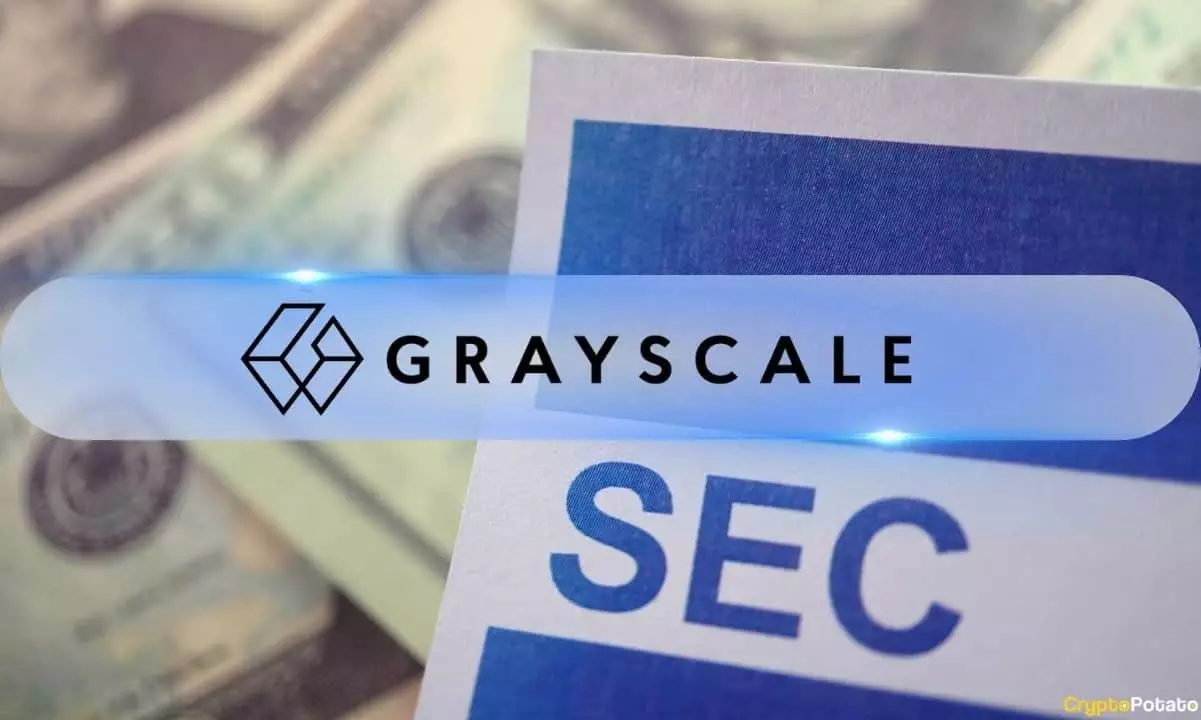Grayscale Investments is at the forefront of transforming the cryptocurrency investment scene by filing a request with the U.S. Securities and Exchange Commission (SEC) to transition its digital large-cap fund into an exchange-traded fund (ETF). This strategic move comes alongside various other initiatives in the crypto market, signaling a growing acceptance and potential mainstream integration of digital assets. With the current market dynamics, Grayscale seeks to leverage its substantial $524 million assets under management to tap into the regulatory clarity that an ETF format could offer.
Bitcoin (BTC) dominates the fund, comprising a hefty 75% of the portfolio, while Ethereum (ETH) contributes 19%. This concentrated approach indicates a deliberate strategy aimed at capitalizing on the two largest cryptocurrencies in the market. The remaining allocation to Solana (SOL), Avalanche (AVAX), and XRP showcases Grayscale’s willingness to incorporate emerging digital assets, hinting at a diversified investment posture.
As Grayscale gears up to potentially list its ETF on the New York Stock Exchange (NYSE), it isn’t operating in isolation. Canary Capital is also making headlines with its plans for a spot Litecoin ETF, illustrating a broader trend among investment firms to explore the ETF route for various cryptocurrencies. This diversification not only aligns with evolving investor preferences but also reflects a significant shift in how cryptocurrencies are perceived within traditional finance.
Canary Capital’s proposal to establish an ETF based on Litecoin (LTC)—currently valued at approximately $5.3 billion—exemplifies a belief in the strengthening potential of established cryptocurrencies. As the market continues to mature, firms are increasingly recognizing the institutional potential and reliability of digital assets, which they hope to accentuate through ETFs.
Amid these developments, Grayscale has also launched a dedicated trust to track XRP, potentially preparing for a future spot XRP ETF. However, the company faces an uphill battle given Ripple’s ongoing legal skirmishes with the SEC. Notably, Ripple CEO Brad Garlinghouse remains optimistic that XRP will one day see its ETF, indicating a broader confidence in the SEC’s evolving stance towards cryptocurrency regulation.
The crux of this shift rests on the SEC’s eventual decisions regarding various applications for crypto ETFs. Several firms, including Bitwise alongside Grayscale and Canary Capital, are vying for regulatory approval. Their aspirations to develop ETFs that utilize indices like the Chicago Mercantile Exchange’s CF Ripple index could significantly reshape how investors access and benefit from these digital currencies.
The unfolding story of cryptocurrency ETFs represents more than just a financial maneuver; it marks a critical juncture for the integration of digital assets into mainstream investment frameworks. As various players seek approvals, and as regulatory environments appear to shift towards greater acceptance, it remains essential for investors to stay informed about these developments. The potential approval of these ETFs would not only enhance liquidity but also bolster confidence among institutional and retail investors alike, potentially ushering in a new wave of investment opportunities within the cryptocurrency domain.

